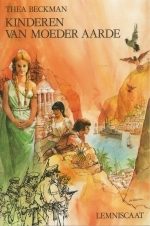Title: Dawn
Author: Yoshiki Tanaka
First published November 1, 1982
292 pages, Paperback
ISBN: 9781421584942 (ISBN10: 1421584948)
Rating: 4.05
Overview
In the vast expanse of space, two leaders emerge with vastly different ideals. The young and ambitious Reinhard von Lohengramm, known as “The Golden Brat,” has his sights set on nothing less than absolute power over the Galactic Empire.
His opponent, the humble Yang Wen-li, fights for the preservation of democracy and the ideals of the Free Planets Alliance. The two engage in a complex game of political and military strategy, spanning centuries of galactic history.
Yoshiki Tanaka’s epic tale of power, ambition, and sacrifice will leave you on the edge of your seat until the very end. Welcome to the world of Dawn.
About the Author
Yoshiki Tanaka, a Japanese novelist, hails from Kumamoto Prefecture and holds a doctorate degree in Japanese Language and Literature from the Graduate School of Gakushūin University in Tokyo.
Tanaka is renowned for his works in the fantasy and sci-fi genres, including the anime and manga adaptations of his novel series Arslan Senki or The Heroic Legend of Arslan, and Ginga Eiyū Densetsu or Legend of the Galactic Heroes. He also wrote Sohryuden: Legend of the Dragon Kings, which was adapted as anime.
Apart from his interest in writing, Tanaka is a passionate admirer of Chinese history, and has authored novels set in China. He has also published two arranged-translations of Chinese literature, namely “Sui Tang Yanyi” or “Stories of Sui and Tang Dynasties,” and “Shuo Yue Quan Zhuan” or “Telling the Complete Biography of Yue Fei,” both of which he has titled “Gakuhi-den” or “The Story of Yue Fei.” Additionally, Tanaka is well-versed in Persian history, which served as the inspiration for his creation Arslan Senki.
Editoral Review
Dawn, written by Yoshiki Tanaka and first published on November 1, 1982, is a highly acclaimed science fiction novel that has become a cult classic in Japan. The book is set in a distant future where humanity has colonized the galaxy and is at war with an alien race known as the Abh.
Tanaka is a prolific author and screenwriter, best known for his work in science fiction and fantasy. His writing style is characterized by its intricate world-building, complex characters, and political intrigue.
The book opens with the story of Jinto Lynn, a young man who is about to become the new governor of the planet Martine. Jinto’s father had surrendered the planet to the Abh in exchange for their protection, and as a result, Jinto is half-Abh.
He is sent to the Abh capital to attend the Imperial Academy, where he meets Lafiel, an Abh princess. The two of them soon become embroiled in a political conspiracy that threatens to destroy the Abh Empire.
One of the strengths of Dawn is its world-building. Tanaka has created a rich and detailed universe that is both believable and fascinating.
The Abh culture, in particular, is well-developed, with its own language, customs, and social hierarchy. The book is also filled with political intrigue, as different factions within the Abh Empire jostle for power.
The characters in Dawn are complex and well-realized. Jinto and Lafiel are both sympathetic protagonists, and their relationship is one of the highlights of the book.
The supporting cast is also well-drawn, with each character having their own motivations and agendas.
The pacing of the book is slow at times, which may be a turn-off for some readers. However, the slow build-up allows Tanaka to fully explore the world and the characters, which ultimately pays off in the later parts of the book.
One of the themes of Dawn is the nature of identity and belonging. Jinto struggles with his dual identity as both a human and an Abh, while Lafiel is torn between her duty to her people and her love for Jinto.
The book also explores the idea of colonialism and its impact on both the colonizers and the colonized.
Overall, Dawn is an excellent science fiction novel that is well worth reading. Its intricate world-building, complex characters, and political intrigue make it a standout in the genre.
It is not without its flaws, but these are minor quibbles in an otherwise impressive work. Fans of science fiction, particularly those interested in political intrigue and complex world-building, will find much to enjoy here.
I would give it a rating of 4 out of 5 stars.



